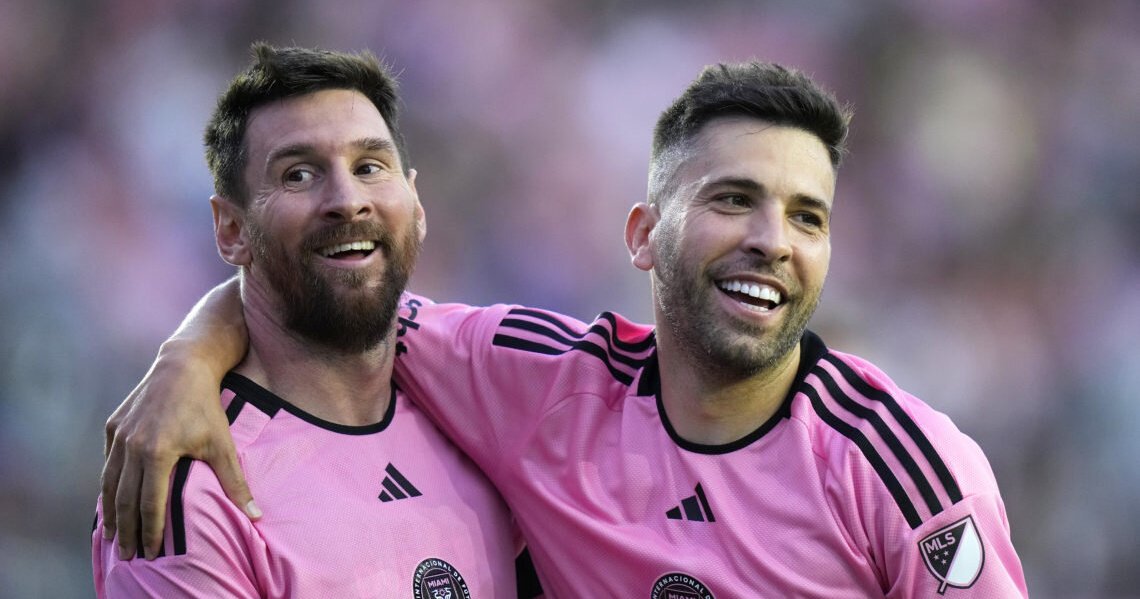The recent MLS All-Star Game in Austin, Texas, was designed as a showcase of Major League Soccer`s burgeoning talent and an opportunity to engage with fans. Yet, amidst the celebratory atmosphere, an undercurrent of controversy emerged, centering on the conspicuous absence of Inter Miami`s star duo, Lionel Messi and Jordi Alba. Their unexpected withdrawal from the squad, despite being voted onto the roster, has ignited a discussion that extends far beyond the pitch, touching upon league regulations, player welfare, and the delicate balance required to manage global sporting icons within an established system.
The Unseen Clause: A Policy of Participation
At the core of this unfolding narrative is a well-established, though perhaps lesser-known, MLS policy: any player selected for the All-Star squad who subsequently misses the event without a confirmed, documented injury faces the possibility of a one-match suspension. This regulation is not arbitrary; it serves to reinforce the importance of the All-Star Game as a pivotal league event, ensuring the participation of its most marketable assets. For Messi and Alba, both overwhelmingly elected by fans and peers, this policy now looms as a tangible threat, potentially sidelining them from a crucial upcoming fixture for Inter Miami.
Inter Miami`s Predicament: Points, Playoffs, and Penalties
The timing of this potential suspension could hardly be worse for Inter Miami. The Herons are currently entrenched in a demanding schedule, battling intensely to climb the Eastern Conference standings. A recent 3-0 defeat to FC Cincinnati served as a stark reminder of the competitive rigors of the league. While Miami holds several games in hand due to their participation in the Club World Cup, actual points secured on the scoreboard remain paramount for their playoff aspirations. The prospect of losing two foundational players like Messi, their tactical lynchpin, and Alba, a crucial defensive and offensive presence, even for a single match, could significantly impede their hard-won momentum. One might observe the subtle irony: the very individuals brought in to elevate the team`s fortunes are now inadvertently complicating its immediate path forward.
Commissioner Garber`s Calculated Candidness
The situation quickly drew comments from MLS Commissioner Don Garber, whose remarks provided insight into the league`s complex stance. Garber unequivocally underscored the All-Star Game`s significance as a “real priority” for MLS – a vital mid-season platform for stakeholders, fans, and commercial partners. It embodies the league`s commitment to growth and commercial visibility. Simultaneously, however, he acknowledged the unique circumstances surrounding Messi`s recent workload: “He`s played nine matches in 30 days. Miami`s had a schedule that is unlike any other team.” This recognition of player fatigue, juxtaposed with the necessity of enforcing league rules, illustrates a commissioner navigating a unique and highly visible administrative challenge.
“We should`ve known earlier, we should`ve addressed it earlier. No doubt about that.”
Garber`s subtle, yet pointed, admission indicates a degree of frustration regarding the communication protocols surrounding the players` withdrawal. While acknowledging that Jordi Alba reportedly sustained an injury in the previous match, the absence of a clear, pre-emptive explanation for Messi`s non-participation places the onus squarely on Inter Miami to provide adequate justification to the league office. The subsequent process, as Garber indicated, mandates a direct dialogue between the league and the club before any definitive confirmation regarding the players` availability for the upcoming weekend match.
The Broader Implications: Managing Stardom in a Developing League
Lionel Messi`s arrival in Major League Soccer was heralded as a watershed moment – a transformative event destined to propel the league onto the global sporting stage. And in many respects, it has achieved precisely that, evidenced by record viewership, unprecedented media attention, and a substantial surge in merchandise sales. Yet, with unparalleled stardom comes unparalleled complexity. This All-Star game episode serves as a salient reminder that even the most celebrated athletes are, in principle, subject to the operational frameworks and disciplinary guidelines of the league they inhabit.
MLS is no longer a nascent competition; it is a rapidly expanding league with legitimate aspirations of global prominence. Upholding its rules, even when it involves its most prized assets, sends a clear message about its professional standards and commitment to equitable governance. Concurrently, the league must also critically evaluate player welfare, particularly for those navigating grueling schedules and intense public scrutiny. It is a delicate equilibrium – balancing the commercial spectacle with the practicalities of player management and integrity.
Awaiting the Verdict: The Path Forward
As the immediate aftermath of the All-Star festivities subsides, attention now pivots to the impending dialogue between the MLS league office and Inter Miami. The outcome of this discussion will not only determine the immediate fate of Messi and Alba`s participation against FC Cincinnati but will also establish a significant precedent for how Major League Soccer navigates the challenges of integrating and managing global sporting phenomenon within the confines of its established regulations. It represents a critical test of communication, institutional resolve, and ultimately, the league`s capacity to skillfully manage the exciting, yet occasionally complex, realities that accompany true global recognition.

